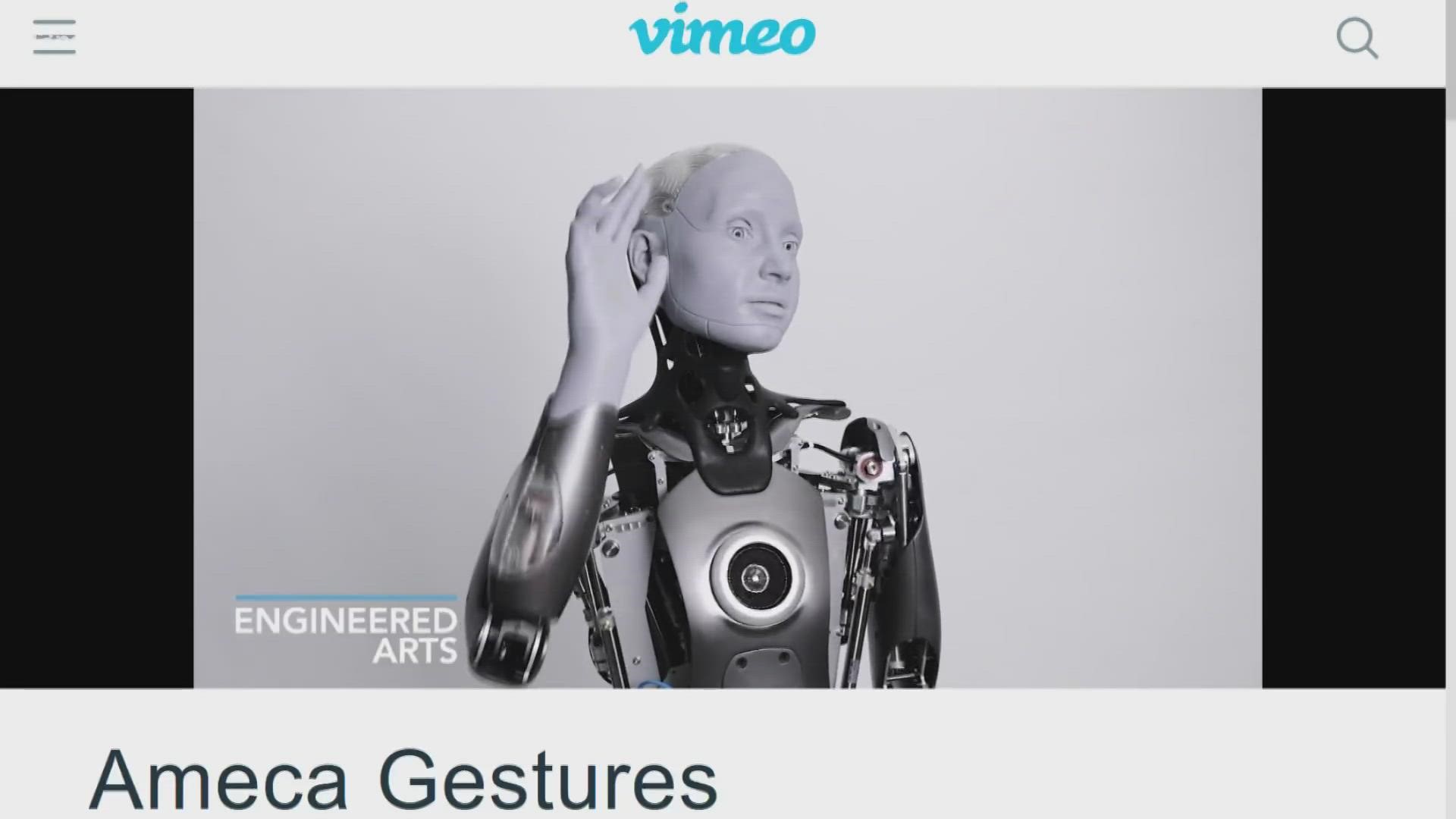NORFOLK, Va. — Artificial intelligence is all around us. From the palms of our hands and the floors of our homes to the roadways, oceans, and beyond. Technology advancements have already changed the way we live, work, and play.
A.I. is the creation of machines and programs that can perform tasks usually reserved for humans, like learning and problem-solving.
Voice assistants help us remember appointments, smart homes can keep our front doors locked, we have cars that can drive themselves, robots that mow our lawns, and smartphones that are filled with intuitive applications.
But all this technology had to start somewhere.
In 1984, we were on the brink of change. According to an ABC News report that year, scientists had just unveiled the Automated Manufacturing Research Facility at what was then known as the National Bureau of Standards in Gaithersburg, Maryland.
Testing out intuitive, robotic machines at the site laid the groundwork for the automated warehouses and factories we see today.
But with their work came the inevitable conflict that is "human versus computer."
“There remains underlying discomfort with the ever-expanding capabilities of computer systems,” said ABC News reporter Paul Reece in 1984.
Despite the major advancements since then, our mentality really hasn’t changed much.
Take the recent controversy over Microsoft’s Bing chatbot, whose beta test with users didn’t go quite as planned.
“It told me that it had dangerous and dark fantasies about spreading misinformation or propaganda, even hacking into banks or nuclear sites,” said Kevin Roose, a tech columnist with The New York Times.
A representative for Microsoft told ABC News that feedback on the new Bing chatbot has been overwhelmingly positive and that the company is working to improve the user experience.
Still, some research shows the majority of people are cautious about artificial intelligence, at least when it comes to self-driving cars.
According to a recent AAA report, 68% of people are afraid of driverless cars, up 13% from last year.

